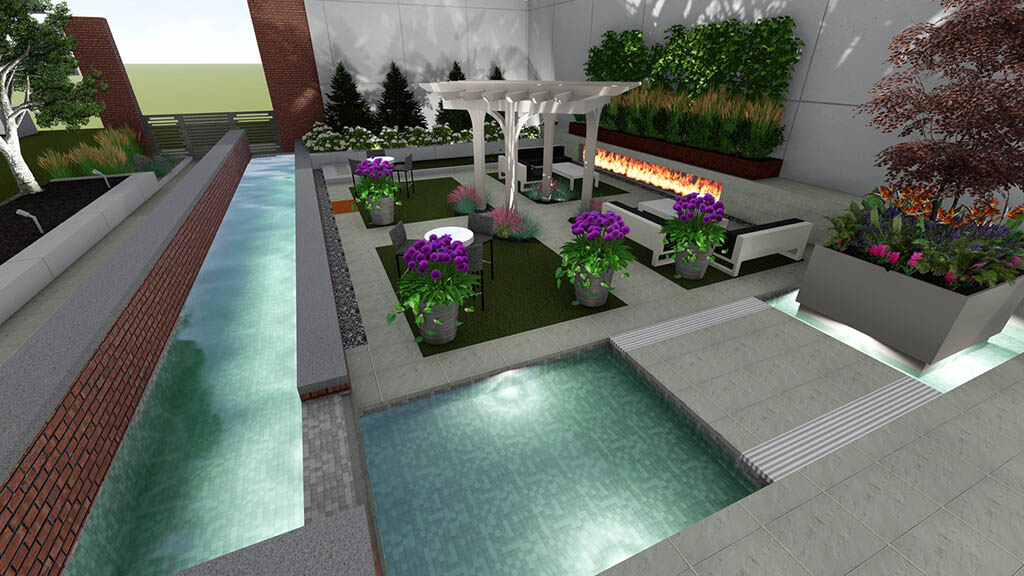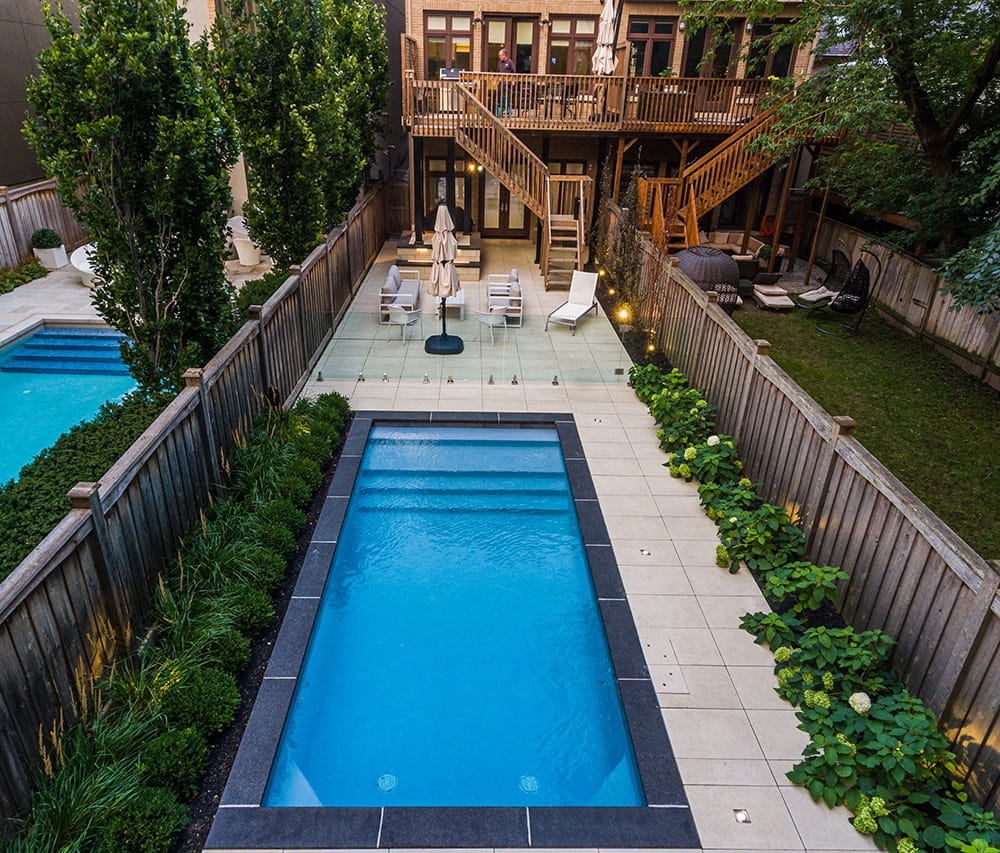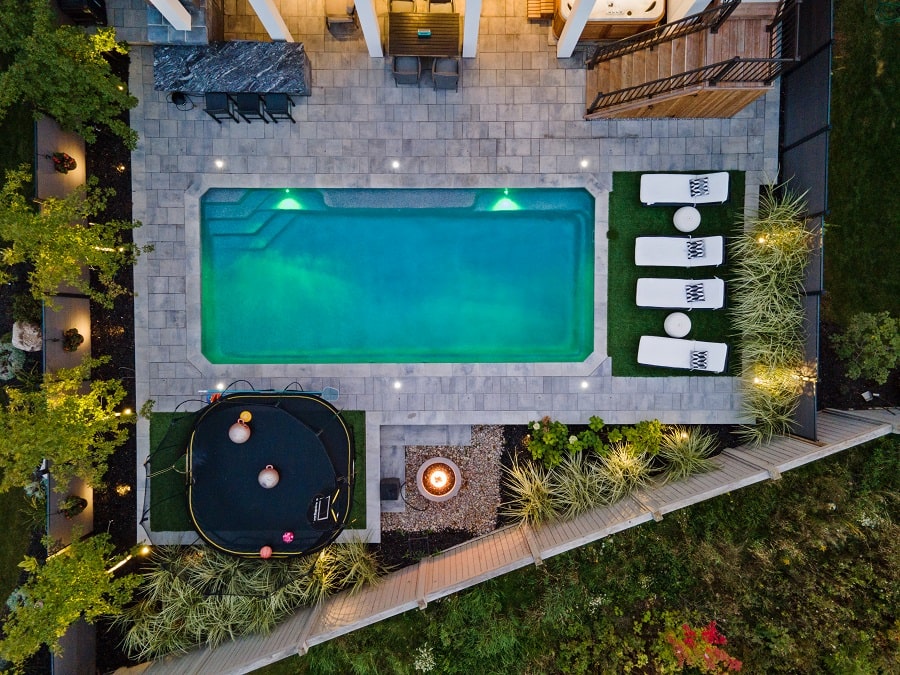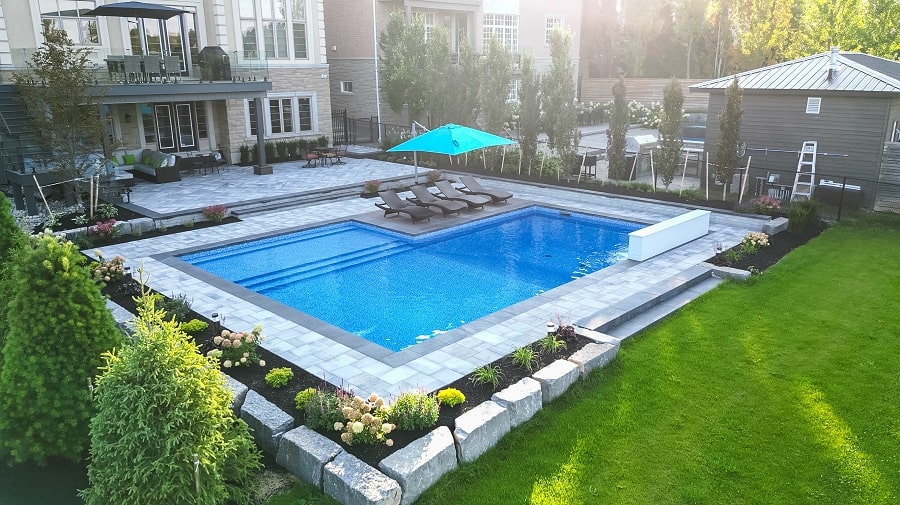When most people think about installing a swimming pool, they envision a personal backyard retreat: a place to relax, entertain, and enjoy the water with family and friends. However, commercial-grade swimming pools are built for a whole different set of purposes and demands. These pools are designed for high traffic, durability, and long-term performance, often serving public spaces such as gyms, resorts, schools, and recreational centers. But what exactly makes a pool “commercial-grade,” and how does it differ from the typical residential pool?
In this article, we’ll dive into the key features of commercial-grade swimming pool installation, explore the differences between commercial and residential pools, and discuss why choosing commercial-grade pools might be the best option for your business or property.
Whether you’re a hotel owner, fitness center operator, or recreational facility manager, understanding the unique aspects of commercial pool construction can help you make informed decisions about your investment. Let’s explore what makes commercial-grade pools different and why they might be the perfect fit for your needs.
What is a Commercial-Grade Swimming Pool Installation?
Commercial-grade swimming pools are pools designed and built to withstand frequent use by large numbers of people. Unlike residential pools, which are primarily used for private enjoyment, commercial pools serve public spaces, such as community centers, gyms, hotels, resorts, water parks, and more. These pools are specifically engineered to handle high traffic and are subject to more stringent safety regulations and construction standards.
The main features that differentiate a commercial pool from a residential one include their larger size, higher volume of water circulation, and the need for durable materials and equipment that can endure constant use. These pools are also often designed to meet local or national health and safety codes, which are stricter than those for residential pools.
Some common characteristics of commercial-grade swimming pool installation include:
- Larger dimensions: Commercial pools are typically much larger than residential pools, often built to accommodate more people, sometimes exceeding 25 meters in length and deep enough for diving.
- High-traffic functionality: These pools are built to handle more swimmers at once, which requires more robust circulation systems, water filtration systems, and frequent chemical testing.
- Strict safety features: From lifeguard stations and access ramps to proper fencing and regulations for the pool’s depth and shape, commercial pools must meet strict codes to ensure safety for the public.
Key Differences Between Commercial-Grade and Residential Swimming Pools
While the concept of a pool remains the same, a body of water for swimming and recreation, the way commercial and residential pools are designed, constructed, and maintained differs significantly. Let’s explore the most notable differences:
1. Design and Capacity
- Commercial Pools: Commercial pools are designed to handle a larger number of users simultaneously. They need to provide ample space for various activities like swimming laps, diving, or leisure swimming. Because of the higher capacity, commercial pools are built larger and deeper, often tailored to specific functions, such as competition pools or leisure pools with water slides.
- Residential Pools: These are typically much smaller and cater to private use, which means they are built to a standard that fits the size and needs of a single household. Residential pools may feature unique shapes and designs, but they are not required to accommodate as many people as commercial pools.
2. Materials and Durability
- Commercial Pools: The materials used in commercial pool construction are chosen for their durability and longevity. These pools are subjected to constant use, so they need to be made of reinforced concrete, stainless steel, or other high-grade materials that can withstand heavy foot traffic, frequent chemical treatments, and the elements. This ensures that the pool can endure daily wear and tear over many years.
- Residential Pools: Residential pools often use materials like fiberglass or vinyl, which are less expensive and easier to maintain. While these materials are durable for personal use, they may not hold up as well to the high demands of a commercial facility.
3. Maintenance and Equipment
- Commercial Pools: Since commercial pools are used much more frequently than residential ones, they require a much more robust filtration and circulation system. These pools often incorporate advanced, high-capacity pumps, heaters, and filtration systems that need to be able to handle larger volumes of water and high swimmer traffic. Additionally, these pools require more frequent maintenance and testing of water quality, including checking for correct chemical levels, pH balance, and chlorine content.
- Residential Pools: While maintenance is still essential for residential pools, they require less frequent upkeep compared to commercial pools. The filtration systems in residential pools are designed for lower volumes and are less complex. Homeowners often manage their pool maintenance themselves or with occasional professional help.
4. Safety Standards and Regulations
- Commercial Pools: Commercial pools are subject to strict health and safety regulations that vary by location but generally include requirements for lifeguard stations, proper fencing, pool depth, accessibility for people with disabilities (ADA-compliant), and emergency evacuation plans. Additionally, they need to be regularly inspected to ensure they meet the local and national safety standards.
- Residential Pools: While residential pools must comply with local safety codes (such as fencing requirements or safety covers), they are not subject to the same rigorous regulations as commercial pools. Residential pool owners are typically not required to have lifeguard stations or other public safety measures in place.
5. Water Treatment and Chemicals
- Commercial Pools: Given their higher usage rates, commercial pools require advanced water treatment systems to maintain proper water balance. These pools often have automated chemical dosing systems that monitor and adjust the water chemistry to maintain a safe and clean environment for swimmers. This includes maintaining chlorine levels, pH balance, and alkalinity in real-time.
- Residential Pools: In a residential pool, the owner is generally responsible for managing the chemical levels manually. While automated systems are available, many homeowners use simpler, less expensive water treatment methods, and they check the water chemistry less frequently.
Why Choose Commercial-Grade Swimming Pool Installation for Your Business or Property?
While residential pools are suitable for private use, there are several compelling reasons why businesses and property owners might opt for commercial-grade swimming pool installation. Here’s why investing in a commercial-grade pool is a wise choice:
1. Durability for High Traffic
Commercial-grade swimming pools are built to withstand continuous use. They are designed to handle high volumes of swimmers, frequent chemical treatments, and wear from pool equipment like slides, diving boards, and water features. This durability ensures that your investment lasts longer and remains functional even after years of high traffic.
2. Cost Efficiency Over Time
Although the upfront costs for swimming pool installation are higher than those for residential pools, they offer better long-term value. The durability of the materials and the efficiency of the equipment mean fewer repairs, lower maintenance costs, and less frequent need for upgrades. In the long run, a commercial pool will provide better return on investment.
3. Compliance with Health and Safety Codes
For public spaces, compliance with local health and safety regulations is critical. Commercial-grade swimming pools are built to meet these strict standards, ensuring that your pool is safe for all users and reduces the risk of liability. This is particularly important in places like schools, resorts, and gyms where public safety is a top priority.
4. Enhancing Customer Experience
In hotels, resorts, and fitness centers, a commercial-grade swimming pool installation adds value by improving the overall customer experience. Whether it’s a luxury infinity pool at a resort or a therapeutic pool at a health center, offering a high-quality swimming experience can be a major selling point for guests.
Contact Our Commercial Pool Installation Experts Now!
Types of Commercial-Grade Pools
Commercial-grade pools come in various types, depending on the specific purpose they serve. Here are some common examples:
1. Competition Pools
These pools are designed specifically for swim meets and competitive events. They have precise dimensions, lane markings, and depth requirements as specified by swimming organizations such as FINA (Fédération Internationale de Natation).
2. Recreational Pools
Recreational commercial pools are often found at water parks, resorts, and public recreational centers. They may include features like water slides, wave machines, and splash pads to enhance the fun factor for guests.
3. Therapy Pools
Therapy or hydrotherapy pools are designed for rehabilitation or relaxation purposes. They feature controlled temperatures, adjustable jets, and are typically used in physical therapy clinics, spas, and wellness centers.
Cost of Commercial-Grade Swimming Pool Installation
When it comes to commercial pool construction, the initial investment is higher than residential swimming pool installation, but the benefits far outweigh the costs. The overall cost will depend on factors such as the size of the pool, the materials used, additional features (like water slides or hot tubs), and local regulations. Here are some key cost considerations:
- Materials: Commercial-grade pools require more durable materials like reinforced concrete or stainless steel, which are more expensive than standard residential pool materials.
- Size: Commercial pools are generally larger than residential pools, so the cost per square foot will be higher.
- Features and Customization: Pools designed for specific functions (competition, therapy, or recreational) often require specialized features that increase the cost of installation.
- Ongoing Maintenance: While commercial pools tend to have more complex systems, they are built for efficiency, meaning their operating costs may be lower in the long run.
The Process of Installing a Commercial-Grade Pool
The process of installing a commercial-grade pool can be broken down into several key steps, from initial consultation to final installation:
- Design Consultation: The first step is a consultation with pool builders and architects to design the pool to meet the specific needs of your facility. This includes choosing the size, shape, materials, and features.
- Site Preparation: The construction site will be prepared by excavating the land, levelling the ground, and ensuring that proper plumbing and electrical systems are in place.
- Pool Construction: This phase involves the actual construction of the pool shell, installation of filtration systems, and the addition of any special features like lighting, heating, or water features.
- Finishing Touches: After the pool is constructed, landscaping services, decking, and other finishing elements will be added to make the pool both functional and aesthetically pleasing.
- Maintenance Setup: Once the pool is operational, ongoing maintenance and chemical monitoring will be implemented to ensure the pool remains safe and in good condition.
Frequently Asked Questions
What is the difference between commercial-grade swimming pool installation and residential pool installation?
Swimming pool installation for commercial-grade pools is designed for high-traffic areas like gyms, hotels, and water parks. These pools are larger, made from more durable materials, and built to handle constant use. In contrast, residential pool installation is typically for private use and involves smaller pools with less frequent usage. Commercial pools must meet strict safety regulations, such as lifeguard stations and ADA compliance, and are equipped with advanced filtration and circulation systems to accommodate higher swimmer volumes.
2. How much does it cost to install a commercial-grade swimming pool in Toronto?
The cost of installing a commercial-grade swimming pool in Toronto varies depending on the size, materials, features, and site conditions. On average, commercial pool installation can range from $100,000 to $500,000 or more. Factors like pool design, custom features (such as water slides or therapy jets), and the complexity of the site will influence the final cost. Contact a local pool company in Toronto for a detailed estimate.
3. What are the benefits of choosing a commercial-grade pool for my hotel or fitness center?
Commercial-grade pools offer several benefits for businesses like hotels and fitness centers, including enhanced durability, long-term cost savings, and compliance with safety regulations. These pools are designed to handle high foot traffic and require less frequent maintenance due to their robust construction. They also provide a better guest experience with features like larger sizes, advanced water treatment systems, and added luxury features, ensuring high satisfaction and repeat visits.
4. How long does it take to build a commercial-grade swimming pool?
The timeline for building a commercial-grade swimming pool depends on various factors, including the pool’s size, design complexity, and weather conditions. On average, it can take anywhere from 3 to 6 months to complete a commercial swimming pool installation. Custom designs, regulatory approvals, and landscaping elements may extend the timeline.
5. Are commercial pools safe and compliant with local regulations?
Yes, commercial pools are designed to meet stringent safety standards and local regulations, including requirements for pool depth, fencing, accessibility, and lifeguard stations. Pool construction for public spaces must comply with the guidelines set by local health and safety authorities, ensuring a safe environment for all users. Be sure to work with certified pool builders who understand these regulations to ensure full compliance.
6. Can I incorporate landscaping into my commercial-grade swimming pool design?
Absolutely! Pool landscaping services are essential to create a harmonious outdoor space around your commercial pool. Adding features like decking, lighting, water features, and green spaces enhances the aesthetic appeal and overall guest experience. Skilled pool designers and landscapers can integrate these elements seamlessly into your commercial swimming pool installation to create a stunning and functional outdoor environment.
Transform Your Outdoor Space with One of the Top Landscaping Companies in Toronto
Whether you’re looking to enhance your commercial pool area, create a stunning backyard oasis, or revamp your property’s landscape, the best landscaping companies in Toronto are here to help. At LandCon, our expert team specializes in designing and installing beautiful landscapes that complement your vision. With a deep understanding of the local environment and an eye for detail, we turn your ideas into reality.
From pool landscaping to custom garden designs and hardscaping, we offer comprehensive services tailored to your needs. We focus on both aesthetics and functionality, ensuring your outdoor space not only looks fantastic but also works seamlessly with your lifestyle.
Contact us today to schedule a consultation and discover how our landscaping services can elevate your property.









